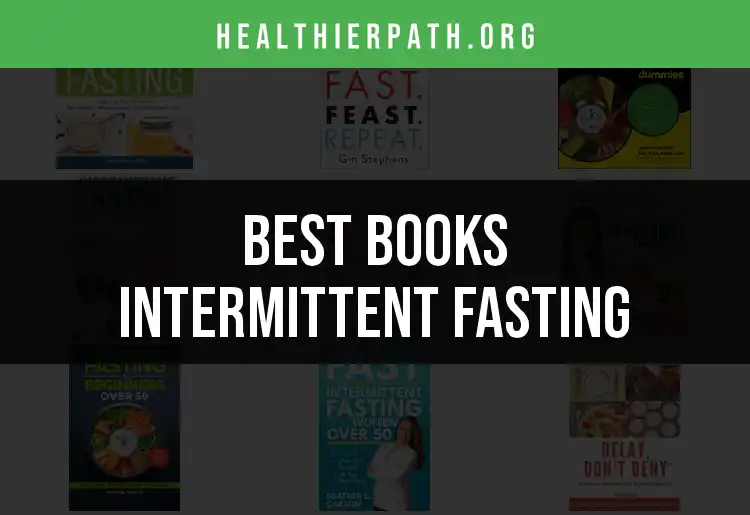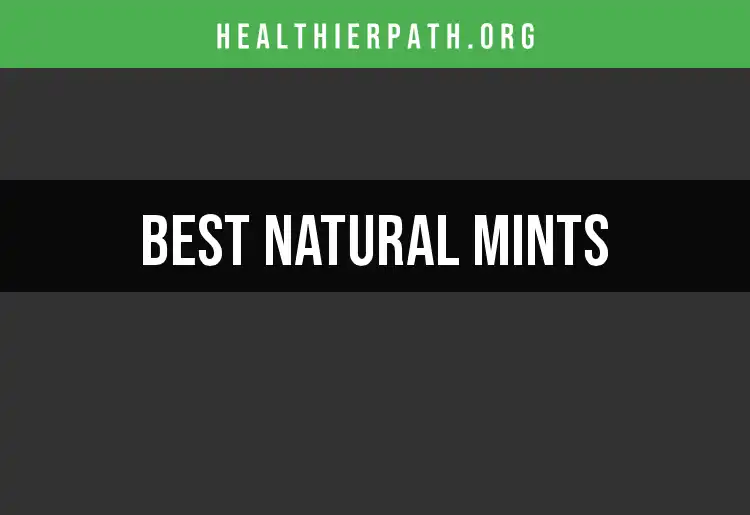Nutrition plays a crucial role in maintaining overall health and well-being. It encompasses a broad range of dietary choices and nutrient requirements that can influence both physical and mental health. Understanding nutrition can empower individuals to make informed choices about their diets.
Introduction to Nutrition
Nutrition is defined as the process by which living organisms obtain and utilize food substances to support growth, repair, and maintenance of bodily functions. Proper nutrition is essential not only for physical health, but also for emotional and mental wellness. Diets rich in essential nutrients can bolster cognitive function, improve mood stability, and help prevent mental health disorders, demonstrating the profound interconnectedness of nutrition and mental health.
Importance of Nutrition in Health Care
Nutrition is a fundamental aspect of health care. Adequate nutritional intake can prevent chronic diseases, enhance immune response, and optimize physical function. Health care professionals prioritize recommending balanced diets as part of disease prevention and management strategies. For example, proper nutrition can reduce the risk of developing conditions like obesity, diabetes, and heart disease. With increasing healthcare costs and public health concerns, fostering good nutritional habits can lead to improved health outcomes and reduced healthcare expenditures for society at large.
Overview of Nutritional Components
To grasp the notion of nutrition, it’s essential to recognize the various components involved:
-
Macronutrients: These include carbohydrates, proteins, and fats, which provide the energy necessary for daily functioning. Each macronutrient plays a distinct role: carbohydrates are the body's main energy source, proteins are vital for muscle growth and repair, and fats support essential bodily functions, including hormone production.
-
Micronutrients: Vitamins and minerals are necessary for various physiological functions, including metabolism and immune response. Deficiencies in these micronutrients can result in significant health problems, emphasizing the need to consume a variety of foods to meet these needs.
-
Water: Essential for hydration, digestion, and metabolic processes, water plays a crucial role in every bodily function. Severe dehydration can lead to serious health problems, underlining the importance of adequate fluid intake.
-
Fiber: A crucial part of a healthy diet that enhances digestive health, fiber helps maintain bowel regularity and can lower the risk of chronic diseases, such as type 2 diabetes and heart disease.
Nutritional Guidelines
Understanding dietary guidelines is key to achieving optimal nutrition. These guidelines are designed to help individuals make healthier food choices based on evidence and research.
Understanding Dietary Guidelines
Dietary guidelines provide a framework based on scientific evidence, recommending the types and amounts of foods to consume. They generally emphasize the consumption of whole foods, including fruits, vegetables, whole grains, lean proteins, and healthy fats. Following these recommendations ensures an individual meets their nutritional needs while minimizing the intake of processed foods laden with sugars, unhealthy fats, and additives.
Recommended Daily Allowances (RDAs)
Recommended Daily Allowances (RDAs) refer to the daily dietary intake levels of essential nutrients needed for healthy individuals. These values are determined based on extensive research and can vary based on age, gender, and life stage, highlighting the need for personalized nutrition. Being aware of RDAs helps individuals identify gaps within their diets, making it easier to select nutrient-dense foods that support overall health.
Balanced Diet Essentials
A balanced diet includes a mix of various food groups. It’s essential for individuals to fill their plates with diverse colors and types of fruits and vegetables, as they provide a broad range of nutrients. Additionally, incorporating lean proteins, such as fish, legumes, and poultry, is vital for muscle repair and growth. Whole grains also serve as an excellent source of energy, providing complex carbohydrates that keep blood sugar levels stable throughout the day.
Maintaining Portion Control
Understanding proper portion sizes is essential for achieving nutritional balance. Monitoring portion sizes can help in managing calorie intake, promoting healthy weight management, and preventing diseases related to obesity. Learning about serving sizes can also simplify meal planning, helping individuals choose nutrient-rich foods that align with their health goals.
Innovative Nutritional Products
With the continual evolution of the nutrition industry, various innovative products are available to support health and well-being beyond traditional foods.
Insights into Emerging Nutritional Products
New nutritional products can offer unique benefits, making them increasingly popular among health-conscious consumers. Staying informed about these innovations empowers individuals to enhance their dietary choices, whether they’re looking to boost energy, improve digestion, or support overall health.
Hydrogen Water
Hydrogen water has gained popularity for its purported health benefits, including enhanced hydration and potential antioxidant properties. It has been suggested that it may help reduce oxidative stress and inflammation in the body.
-
Benefits of Hydrogen Water: Some studies indicate that hydrogen-infused water can improve athletic performance, enhance recovery, and provide cellular protection. Understanding these benefits allows consumers to explore how hydrogen water may fit into their personal health routines.
-
How to Choose the Right Hydrogen Water Bottle: When selecting a hydrogen water bottle, look for quality brands that offer efficient hydrogen infusion methods. The effectiveness of the bottle can greatly impact the benefits you derive from the water.
-
Best Hydrogen Water Bottles from Japan: Japan is known for producing high-quality hydrogen water bottles that effectively infuse water with hydrogen. For a curated list of the best options available, check out this link.
Superfoods and Their Role in Nutrition
Superfoods are nutrient-rich foods that are considered especially beneficial for health and well-being. Incorporating superfoods into your diet can provide added health benefits, making them a worthwhile addition. They often pack a concentrated form of vitamins, minerals, and antioxidants which contribute to various health objectives, such as boosting immunity or enhancing heart health.
Functional Beverages
Functional beverages encompass a variety of drinks designed to offer health benefits beyond basic nutrition. Drinks enriched with probiotics, antioxidants, vitamins, or herbal infusions can provide an easy way to enhance well-being. These beverages can support hydration, digestive health, and energy levels, making them appealing options for modern lifestyles.
Nutritional Supplements
Nutritional supplements can play a valuable role in complementing our diets, especially when balancing daily nutritional needs proves challenging.
Types of Nutritional Supplements
Different types of supplements can provide essential nutrients that might be missing from the diet, particularly for those with specific dietary restrictions or health conditions.
Vitamins and Minerals
Daily multivitamins can help fill nutrition gaps, especially for those on restrictive diets. For instance, individuals with dietary restrictions might be unable to consume enough of specific vitamins or minerals. A high-quality multivitamin can offer a convenient and efficient way to ensure that essential nutrients are met.
Protein Supplements
Protein supplements can be beneficial for individuals who need extra protein intake, such as athletes and those focused on building muscle. Consuming adequate protein is vital for muscle recovery and growth, and protein supplements can provide a quick and easily digestible source.
Probiotics
Probiotics are live beneficial bacteria that support gut health—a critical component of overall well-being. A healthy gut microbiome contributes to digestion, nutrient absorption, and immune function.
-
Importance of Gut Health: Maintaining a balanced gut microbiome is essential to ensure that dietary nutrients are effectively utilized by the body. This balance is increasingly linked to various health aspects, including mental health and inflammation.
-
Overview of Probiotic Teas: Probiotic teas offer a convenient and enjoyable way to incorporate probiotics into your daily routine. These beverages can not only provide beneficial bacteria but also enhance hydration and detoxification.
-
Best Probiotic Teas on the Market: If you’re looking to experience the benefits of probiotic teas, consider reviewing some top choices listed here.
Edible Body Oils as Nutritional Supplements
Edible body oils can be valuable dietary supplements, adding healthy fats to dishes while promoting skin and overall health.
-
Health Benefits of Edible Body Oils: These oils, rich in essential fatty acids, can improve skin health, promote heart health, and enhance nutrient absorption. Incorporating healthy oils into meals not only enhances flavor but also supports satiety.
-
Incorporating Edible Body Oils into Your Diet: Use these oils in salads, marinades, or as drizzles over cooked vegetables for an extra health boost. Experimenting with different oils enables individuals to discover flavors and health benefits that suit their needs.
-
Top Brands of Edible Body Oils: Explore some of the most effective options available by checking this resource.
Specialized Nutritional Needs
Nutritional needs can vary based on different life stages and unique conditions.
Nutrition for Bone Health
Strong bones are crucial at every age, requiring specific nutrients to maintain strength and prevent degeneration.
-
Importance of Calcium and Vitamin D: These nutrients are fundamental for maintaining bone density and preventing osteoporosis, particularly in older adults. Calcium supports bone structure, while vitamin D aids in calcium absorption, making them indispensable teammates in bone health.
-
Nutritional Strategies for Strong Bones: Incorporate weight-bearing exercises alongside calcium-rich foods to fortify bone health. For example, engaging in activities like jogging or resistance training can improve bone density.
-
Recommended Foods for Bone Health: Foods that support bone health include dairy products, leafy greens, nuts, and fortified foods. A diet that combines these options can have a synergistic effect on maintaining bone strength.
To explore additional options for promoting bone health, take a look here.
Nutrition for Digestive Health
Maintaining good digestive health is influenced by the foods we consume and the balance of our diets.
-
The Role of Fiber in Digestion: A high-fiber diet is essential for preventing constipation and supporting gut health. Fiber helps to regulate bowel movements and can lower the risk of chronic diseases associated with improper digestive functioning.
-
Importance of Probiotics in Digestive Health: A well-functioning digestive system ensures optimal nutrient absorption and overall wellness. Probiotics play a critical role in maintaining the health of the gut flora, further reinforcing digestive health.
-
Overview of Acacia Fiber: Acacia fiber is a soluble fiber that offers numerous benefits, including improved digestion and prebiotic effects that help feed beneficial gut bacteria.
-
Benefits of Acacia Fiber: Incorporating acacia fiber can aid in weight management by promoting satiety and regulating blood sugar levels, making it a beneficial component of a balanced diet.
-
Incorporating Acacia Fiber into Your Diet: You can easily add acacia fiber to smoothies, yogurt, or baked goods for added digestive support and health benefits.
-
If you’d like to learn more about the benefits and options for acacia fiber, check this link here.
Medicinal and Herbal Nutrition
Herbal remedies have been utilized for centuries for their health benefits, offering a natural approach to nutrition.
Health Benefits of Bitter Melon Tea
Bitter melon tea has been celebrated for its potential health benefits, particularly concerning blood sugar regulation.
-
Nutritional Composition: Bitter melon is rich in vitamins, particularly vitamin C and A, as well as antioxidants that can combat oxidative stress in the body. These nutrients contribute to its status as a health-promoting beverage.
-
How to Prepare Bitter Melon Tea: To prepare bitter melon tea, steep dried bitter melon slices in hot water for 15-20 minutes. The resulting tea can provide numerous health benefits, making it an excellent addition to the diet.
For those interested in discovering more about the best options for bitter melon tea, be sure to explore this list.
The Practice of Juicing for Health
Juicing is a popular trend that offers a convenient method to increase fruit and vegetable intake, promoting overall health.
-
Benefits of Juicing: Juicing can help individuals meet their daily recommendations for fruits and vegetables quickly and easily. It allows for the consumption of varied nutrients in one serving and can be a tasty way to incorporate healthier options into your routine.
-
Recommended Juicing Recipes: Simple recipes, such as blending leafy greens with fruits like apples or oranges, can provide a nutrient-dense drink that strengthens your overall health. Experimenting with flavors not only adds diversity but also ensures your nutrient profile is robust.
-
Insightful Books on Juicing: For thorough guidance on juicing techniques and recipes, consider checking out insightful resources on the topic. These can deepen your understanding and enhance your experience with juicing. Dive into the highlights of a top book on juicing here.
Nutrition in Special Populations
Nutritional needs are not uniform; they shift based on various life stages.
Nutrition in Pregnancy
Expecting mothers require additional nutrients to support the health of both themselves and their developing babies.
-
Key Nutrients for Expecting Mothers: Essential nutrients during pregnancy include folic acid, iron, and omega-3 fatty acids, which play critical roles in fetal development. Ensuring adequate intake of these nutrients helps reduce the risk of complications and promotes healthy development.
-
Common Dietary Restrictions: Pregnant women must also be mindful of which foods to avoid, such as raw seafood or unpasteurized dairy, to prevent potential risks to the fetus.
Nutrition for Children
Children's dietary needs differ from adults as they are in a constant state of growth and development.
-
Essential Nutrients for Growth: Ensuring adequate intake of protein, calcium, and vitamins is paramount for healthy growth. Each nutrient contributes uniquely to development, paving the way for a healthy future.
-
Strategies for Encouraging Healthy Eating Habits: Offering diverse, colorful foods and engaging children in meal preparation can foster healthy eating habits. Making food enjoyable often leads to long-lasting preferences for nutritious options.
Nutrition for Seniors
As individuals age, their nutritional requirements undergo significant changes.
-
Importance of Nutritional Needs: Seniors may need fewer calories but increased nutrients to support health and vitality. This shift highlights the importance of consuming nutrient-dense options over empty-calorie foods.
-
Tailoring Diets for Aging Bodies: Focusing on lean proteins, whole grains, fruits, and vegetables can significantly enhance the quality of life and maintain bodily functions as one ages.
Practical Applications of Nutrition
Understanding nutrition is not only theoretical but also practical, encompassing daily habits and choices.
Meal Planning and Preparation
Meal planning enables individuals to create a roadmap for balanced eating, reducing reliance on processed foods. By planning meals ahead, you can ensure that your dietary choices are aligned with your nutrition goals.
Understanding Food Labels
Learning how to read food labels empowers consumers to make healthier choices by identifying essential nutrients and avoiding harmful additives or excess sugars. Understanding serving sizes and nutritional content is a vital skill in maintaining health.
Conclusion
In conclusion, proper nutrition is integral to optimal health and well-being. Understanding the various aspects of nutrition and adjusting dietary choices accordingly enables individuals to make significant strides toward a healthier lifestyle. Embracing a focus on balanced eating, innovative products, and specialized needs will foster lifelong wellness.
By committing to a healthier diet, you can enhance your well-being and enjoy a more vibrant life.
















